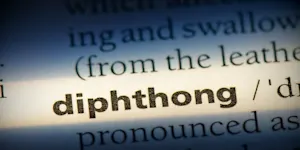What Makes This Word Tick
The word "aromatic" wafts through our senses, often bringing to mind delightful scents. It's typically used to describe something with a noticeable and pleasant smell, like herbs or spices that can transform a kitchen into a sensory paradise. Who wouldn't love a word that instantly evokes lavender fields or a spice-filled pantry?
If Aromatic Were a Person…
Imagine Aromatic as an elegant, well-traveled chef who knows their way around a spice rack. They’re always dressed in a cloud of exotic fragrances, making their presence known before they even enter a room. Like a beloved character in a classic novel, Aromatic enchants everyone it encounters.
How This Word Has Changed Over Time
Originally, "aromatic" described substances containing certain chemical compounds with specific fragrant properties. Over time, it has broadened to include anything with a strong, pleasing scent. While it has its roots in chemistry, today’s usage feels as much at home in a scented candle shop as in a lab.
Old Sayings and Proverbs That Use Aromatic
While "aromatic" doesn't appear frequently in old proverbs, its spirit is present in phrases like "familiarity breeds fondness," especially when discussing delightful smells. The idea that certain scents bring comfort and warmth is timeless and universally understood.
Surprising Facts About Aromatic
Did you know that certain aromatic compounds can affect our mood and memory? This word isn’t just about pleasant smells—it’s tied to how those scents can evoke strong emotional responses. Aromatherapy, anyone?
Out and About With This Word
Next time you're at a garden center, notice how often "aromatic" is used to describe plants. Whether it's rosemary or mint, these plants' labels proudly boast their aromatic nature, tempting gardeners and chefs alike to take them home.
Pop Culture Moments Where Aromatic Was Used
While not the star of song lyrics or movie lines, "aromatic" frequently finds its place in cooking shows. Listen closely next time you're watching a culinary competition, and you'll likely hear a contestant describe their dish's enticing aroma.
The Word in Literature
In literature, "aromatic" often appears in descriptions of sumptuous feasts or nature's bounty. It can set a scene, transporting readers to a fragrant garden or a bustling kitchen, filled with the scent of spices and warmth.
Moments in History with Aromatic
Imagine Cleopatra amidst the burning aromatic resins and exotic perfumes that filled her chambers, or traders on the Silk Road exchanging spices. Although these exact scenarios might not mention the word directly, its essence is undoubtedly there, capturing the rich scents of history.
This Word Around the World
Around the globe, what’s considered aromatic can vary widely. In India, aromatic might conjure turmeric and cardamom; in France, fields of lavender. Each culture's concept of "aromatic" paints a unique picture through its local scents.
Where Does It Come From?
"Aromatic" originates from the Greek word "arōmatikos," meaning fragrant. This word traveled through Latin as "aromaticus" before making its way into Middle English. It's been pleasing the noses of English speakers ever since.
How People Misuse This Word
Sometimes people use "aromatic" to simply mean "strong-smelling," which doesn't quite capture its essence. The word implies a pleasing scent, not just any scent that tickles the nostrils.
Words It’s Often Confused With
Fragrant: Both mean a pleasant smell, but "fragrant" often feels more floral or sweet.
Perfumed: Suggests something has been purposely scented, which might not always be the case with "aromatic."
Odorous: Can imply any smell, good or bad, while "aromatic" is always pleasant.
Additional Synonyms and Antonyms
Synonyms include fragrant, scented, and perfumed. Opposites might be odorless, bland, or musty, none of which bring the same joy to our senses.
Want to Try It Out in a Sentence?
Sure! "The aromatic herbs simmered gently in the pot, filling the kitchen with a welcoming warmth." Why not give it a go and see how "aromatic" can enhance your own stories?
















